"I came back with a sense of adventure"
An intimate look at the impact of childhood travel abroad
On The Cusp is about becoming the next version of ourselves. That means experimenting with the breadth of our interests, exploring the depths of anything that captures our imagination, and learning to embrace uncertainty along the way.
Welcome! This is letter #52.
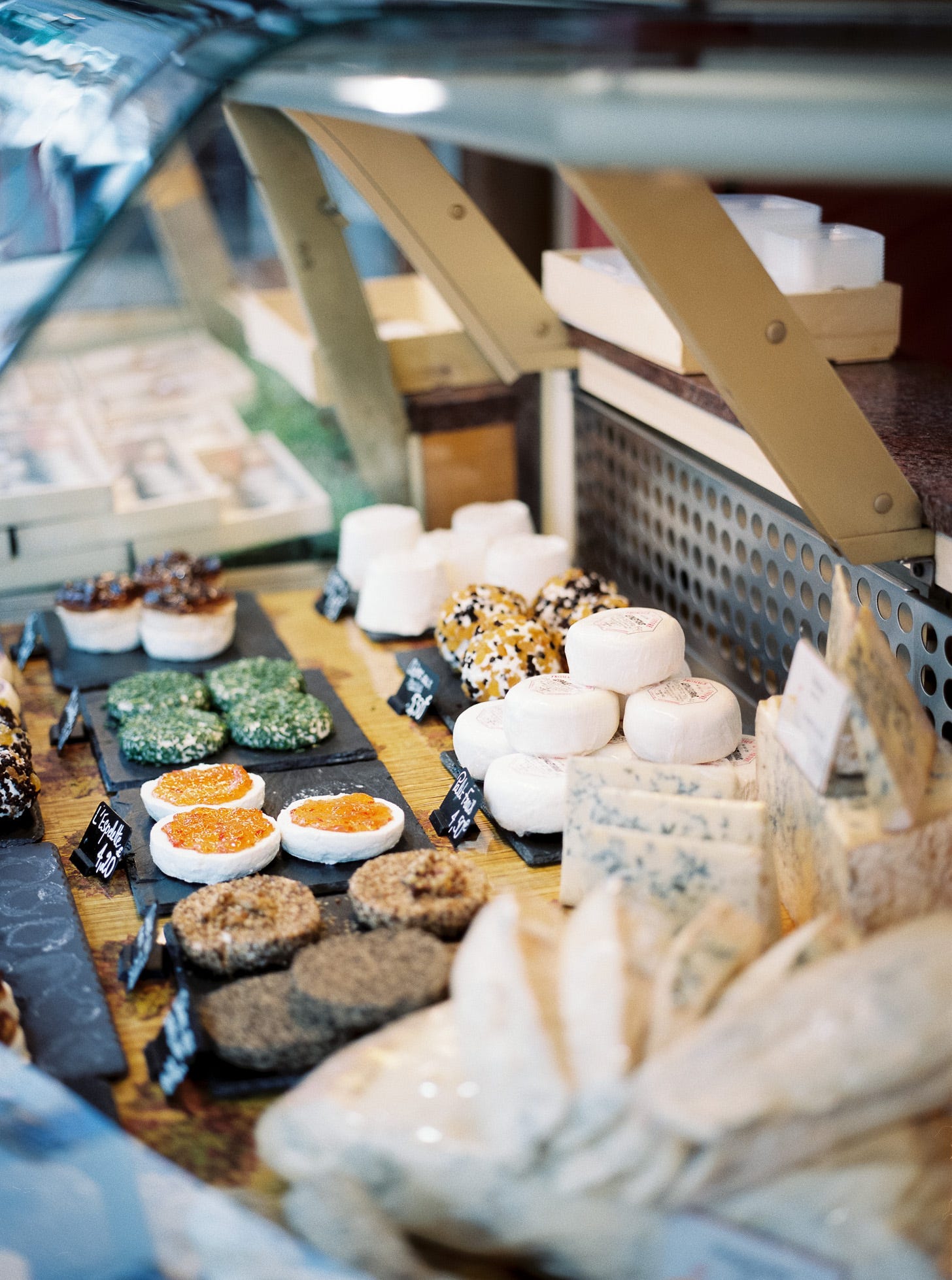
On the first morning of our recent vacation, my boyfriend and I threw our suitcases into the trunk of my Civic, left a key for the catsitter, and headed for the Canadian border. Along the way, we got hungry.
Our first stop was Breadfarm, a destination-worthy bakery in rural Washington, where we snagged a loaf of Samish potato bread and a package of melt-in-your-mouth graham crackers.
Instead of getting back on I-5, we took winding, forested Chuckanut Drive, then stopped for another appetizer at Taylor Shellfish Farms: a dozen oysters on the half-shell, nestled among lemon slices and cups of mignonette and hot sauce.
For our entrée, we split an order of potstickers from a food truck in downtown Bellingham. And dessert was a clamshell of the world’s ripest farmstand strawberries, which we ate messily in the car—and hurriedly, so the Canadian border guards wouldn’t force us to toss them.
This chill-but-decadent approach to lunch on the road reminded me of an anecdote my aunt Nancy shared when I interviewed her. Our conversation had just turned from ocean liner travel to her childhood memories of Europe.
“Every single day we were driving,” she told me, “when we were going from city to city, and in France in particular, we’d get bread at the boulangerie in town. We’d get cheese. We’d get meat and fruit and a chocolate bar. We’d get a bottle of water and a bottle of wine. And we would stop and have a picnic.”
These daily picnic lunches were as delectable as they were novel to a nine-year-old from Ohio. They completely shifted Nancy’s perceptions of food quality: Velveeta was widely available in Toledo in 1966, but Brie and Parmigiano Reggiano? Not so much.
While she didn’t say this explicitly, I wouldn’t be surprised if her childhood travels set the stage for her (and my mom’s) later experiments in gourmet home cooking. You can grow, change, and expand your horizons without leaving your hometown, but traveling tends to hasten that process.
In that spirit, my aunt and father join me again today in a continuation of this fabulous conversation:
As a quick refresher, my maternal aunt Nancy Disabato went on two vacations abroad as a kid, in 1966 and 1969. (You’ll see her—plus siblings Debbie and Bobby, and parents Margot and Cal—pictured below.) My dad Tom Burton spent a year in Germany starting in 1955.
Our interviews have been edited and condensed for flow and clarity.
Maddie: Nancy, is there anything you remember about plane travel in the ’60s, which I imagine was a bit more glamorous than it is now?
Nancy: My mom used to dress up. [Women] wore high heels. You didn't have to go through security, which made that easier. But it was a memorable thing.
Maddie: I know your mom paid for these two vacations. Did she do all of the travel planning, too?
Nancy: She got an itinerary, and then started researching—I think she probably did most of the research herself. As far as I can tell, she wrote letters, and got letters back with reservations.
We had very specific hotel reservations in the big cities: the Columbus Hotel in Rome, the Hotel Danube in the Left Bank in Paris. And then she took the book Europe On $5 A Day to figure out everything else along the way—where to stay, where to eat, the whole shebang.
Maddie: How did you get around in Europe?
Nancy: We got a Peugeot. It was a stick-shift, and my father knew how to drive a stick, but he couldn't get it into reverse, or first, or something. We were in the backseat of the car and Bobby was always between me and Debbie because we got into fights, and Dad was swearing because he couldn’t get the car into the right gear.
My mom would go to AAA and get a TripTik. It was this size [holds up iPhone], there was a spiral at the top, and it showed you exactly how to get to each place. You could get a map, but making TripTiks was one of the things AAA would do for you.
Maddie: I've never heard of TripTiks!
Nancy: They were in black and white. My mom would say [to AAA], “We're going here, we want to go there.” And that’s how my dad knew how to get from place to place.
Maddie: Dad, you went abroad for a whole year. Why was that?
Tom: My father was a chemistry professor at Notre Dame. As academics do, he had a sabbatical year, and he decided to take his at the Max Planck Institute in Göttingen. And because I was five years old and had no control over my life, I went along.
Maddie: How quickly did you adapt to your new life abroad?
Tom: Part of this is based on my own memory, and part of it is from my parents telling me later, but within a week or two I was out there speaking German to all these little German kids.
I'm not saying that to brag; that's just what little kids do! I was speaking—at least for a five-year-old—pretty fluent German within a few weeks.
My parents really struggled. They very much sounded like Americans trying to speak German, and I remember laughing at the way they sounded. I would tease them. I had these American parents, but I thought of myself as a little German kid.
Maddie: You were very young, but what are your clearest memories from that year?
Tom: I was in kindergarten in Germany, and at Christmastime, the kids put on a show for the parents. All of us were wearing angel costumes; they were made out of tissue paper, and we're all carrying candles. My parents were terrified that these kids were going to set each other on fire.
We traveled to Italy, and we were at a restaurant overlooking a harbor—I think it was on the Isle of Capri. My parents ordered pasta with shrimp and scallops and fish. I just remember thinking: “Why in the world would anybody do that?” To me at age five, spaghetti involved sauce with meat.
I also remember seeing people walking around sucking on lemons in Sorrento, and thinking that was kind of strange.
Maddie: Nancy, what were the highlights of your first trip abroad in 1966?
Nancy: We went to London, France, Holland, Switzerland, and Italy. I have specific memories in each of those places. My father would not go to Germany or Austria because of the war. He wouldn't buy German products or cars or anything.
In Switzerland, it was the first time I'd ever seen a duvet with a quilt. I was like, “What is this thing? This is so nice.”
I remember the cheese fondue we had in Switzerland. My mother came home and made it—nobody else was making fondue in Toledo.
We went to the Loire Valley to see the châteaux. Bobby and I were misbehaving, so we didn't get to see the most beautiful château, though I couldn’t have cared less. Debbie, of course, didn't participate, and she went to see it.
The other thing that I didn't participate in, because I got sick after eating green cherries and they left me in the hotel room, was when they went out to lunch [in France]. It turned out that they had the best lunch they ever had. They had croque monsieurs. They came back, I've been jumping on the bed, they’re telling me about the best lunch they’ve ever had in their lives.
One of the most amazing things about Italy, besides the art and food, was this: one day, we were driving, and my mom was like, “Why is there white on those mountains?” because it was too hot for snow. It was Carrara marble. So we went to the Carrara marble quarries where Da Vinci had gone. That was just something we ran into; it wasn't planned.
I think we ended up in Rome. We got a guide there because we couldn't figure anything out. [Our guide] Mario took us into every single effing church. People were having weddings. He took us everywhere.
Maddie: Dad, your father worked on the Manhattan Project during World War II. Were there any tensions you recall about living in Germany after the war?
Tom: My dad was very comfortable being in Germany and Europe, largely because he had collaborated with so many German and European scientists.
We had a Volkswagen when we were living there. We took a trip to France at one point, and the French—understandably—still had some pretty bitter feelings about the Germans. Somebody in France assumed that our car was owned by Germans and scratched up the paint on the side.
I was aware of East Germany and Russia—that they had something to do with each other, and that they were scary and forbidding. We went to the border with East Germany; I stuck my hand through the fence, and thought that my hand had been in Russia. Actually, it was the no man's land between East and West Germany, but that made an impression on me.
Maddie: Nancy, I know that your trip to Yugoslavia and Greece in 1969 was a bit different than your first trip abroad.
Nancy: Yugoslavia was behind the Iron Curtain; it was a Communist country. Dubrovnik was beautiful. We went to a beautiful place called Plitvice—we loved it. But the hotels we stayed in were rough, because they were state-owned.
It was very mountainous, and my father had a hard time driving. There was one part I remember in particular.
There's a 10-mile stretch up in the mountains that was a dirt road. There were trucks—it was very dangerous. And my father was so angry at my mother, but she was like, “Cal, it’s on the TripTik!” It took us 3 hours to go 10 miles.
I couldn't figure out why my mom took us to Yugoslavia, but I think she just thought it was interesting. She was very, very adventuresome.
Maddie: That was one of my questions—why Yugoslavia during the Cold War? But that was your mom's choice.
Nancy: Oh, yeah. She must have read something in a magazine, and she was just adventuresome. To take three young children there—I can't believe my dad agreed to it. He may have been grumbling, but he did what she wanted.
Maddie: What did you bring home from your time abroad, Dad—whether physical items or knowledge?
Tom: I learned to ski, because that's the way a lot of little European kids got around in the winter.
At one point, we traveled down to Italy, where I saw an artist blowing glass for the first time—that's a big deal in Venice. And it was there, maybe at my parents’ urging, that I started a collection of little animals. The first ones I got were these glass horses. Later on, I got some wooden animals from Denmark or Sweden that were red with white polka dots.
I got a pair of lederhosen that I actually wore to school back in America, and I don't remember anyone making fun of me. I remember that the other kids thought it was pretty cool.
Maddie: And what about the language, once you were back at school in the States?
Tom: I got invited to be the leader of the German club because I spoke the language with a German accent. I remember feeling pretty impressed with myself that I could lead the class.
Maddie: Nancy, tell me about the scrapbooks.
Nancy: My mother saved everything. When we came home, every single day, we had to make our stupid scrapbook—all three of us. She would sit us down and make us do that every day so we could remember the trip. We bought postcards and we would keep every receipt.
Maddie: What did your parents bring back from your travels?
Nancy: Wine—I remember my dad really liking the wine. That was way before people were into wine. And when he came home, that changed his life.
He built a wine cellar in our house. It was the only place in our house that was climate-controlled. He went to Chicago and bought wine and he stored it there. They had wine parties.
Maddie: I know about your mom’s home cooking—all these amazing foreign dishes that, at the time, you probably didn’t see coming out of kitchens in Toledo.
Nancy: Except for boeuf bourguignon, that all came from traveling with us. She wasn’t the greatest cook in the world, but man, she tried—and she succeeded a lot of the time.
Maddie: My mom told me that she made souvlaki after your trip to Greece.
Nancy: Yeah. She also made [stuffed] grape leaves; I hated those.
Maddie: Was there anything intangible that you brought back?
Nancy: The invaluable experience of traveling. We brought back this education that most people don't get.
We also brought back knowledge of food that wasn't available in the United States. In those days, we didn't have chocolate like theirs. The coffee, the bread, the cheese—everything was different. In those days, it was still, like, Velveeta cheese at the grocery store. But we came back knowing what Brie was, what Parmigiano Reggiano was.
I also came back with a sense of adventure, and knowing that you didn't need a reservation everywhere—that even if things didn't work out perfectly, you’re going to be okay.
As always, I’d love to hear from you. How did your own childhood travels shape the adult you’ve become?
Warmly,
Maddie




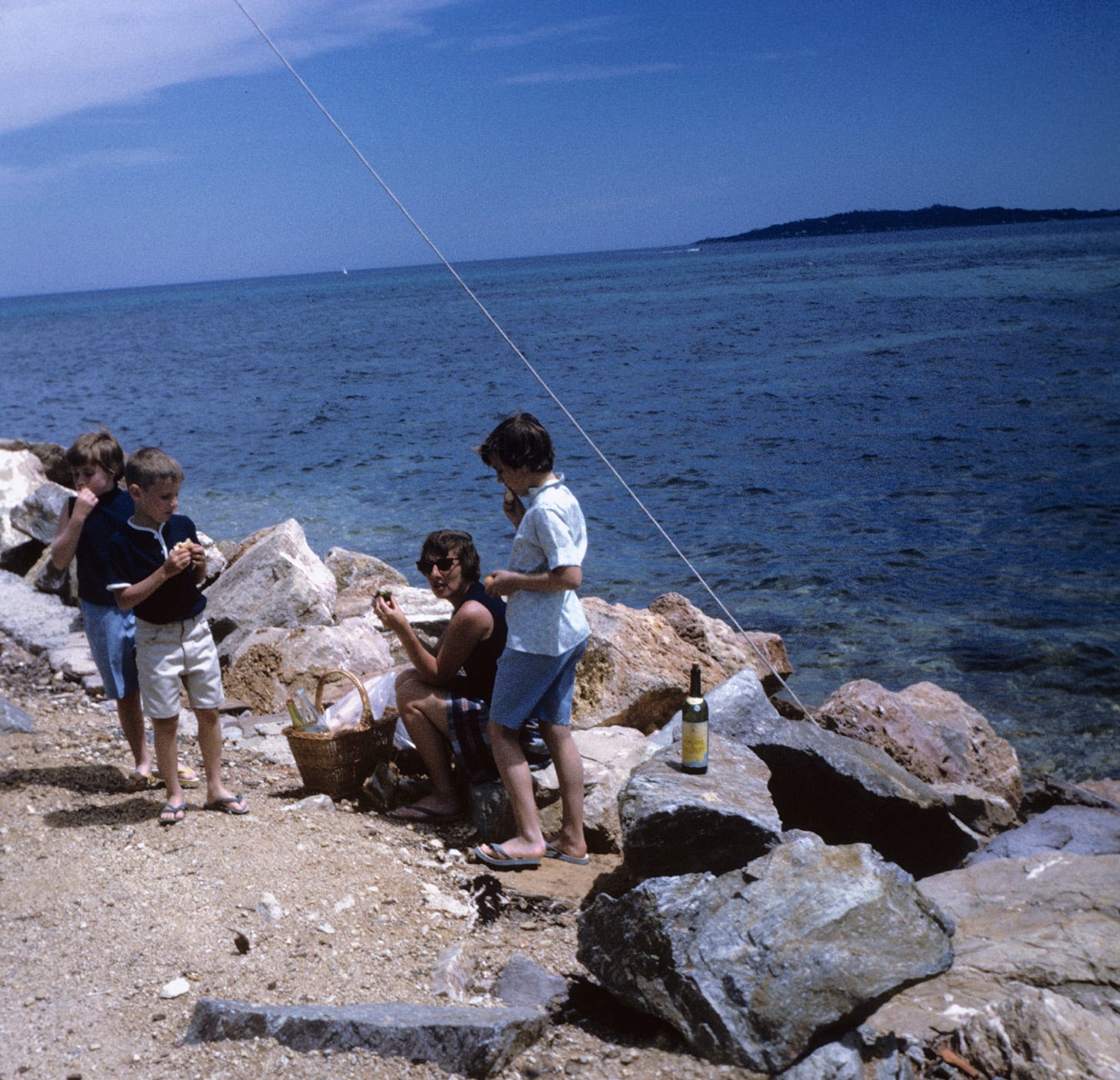

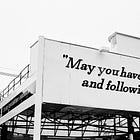


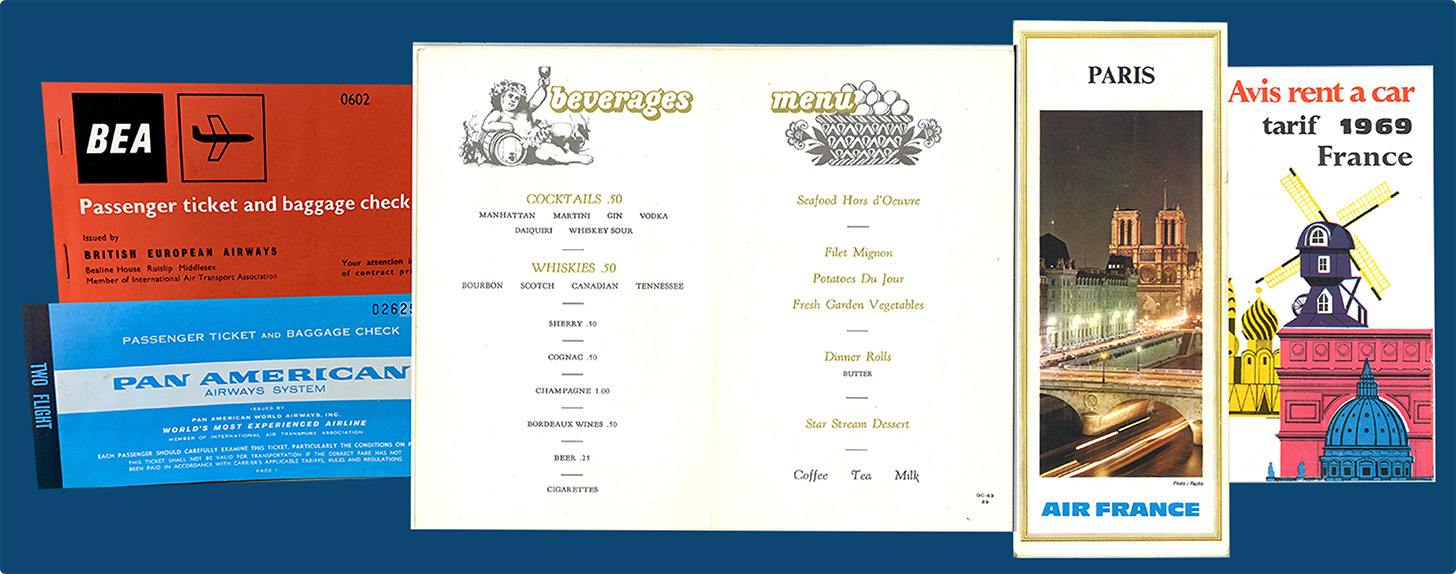


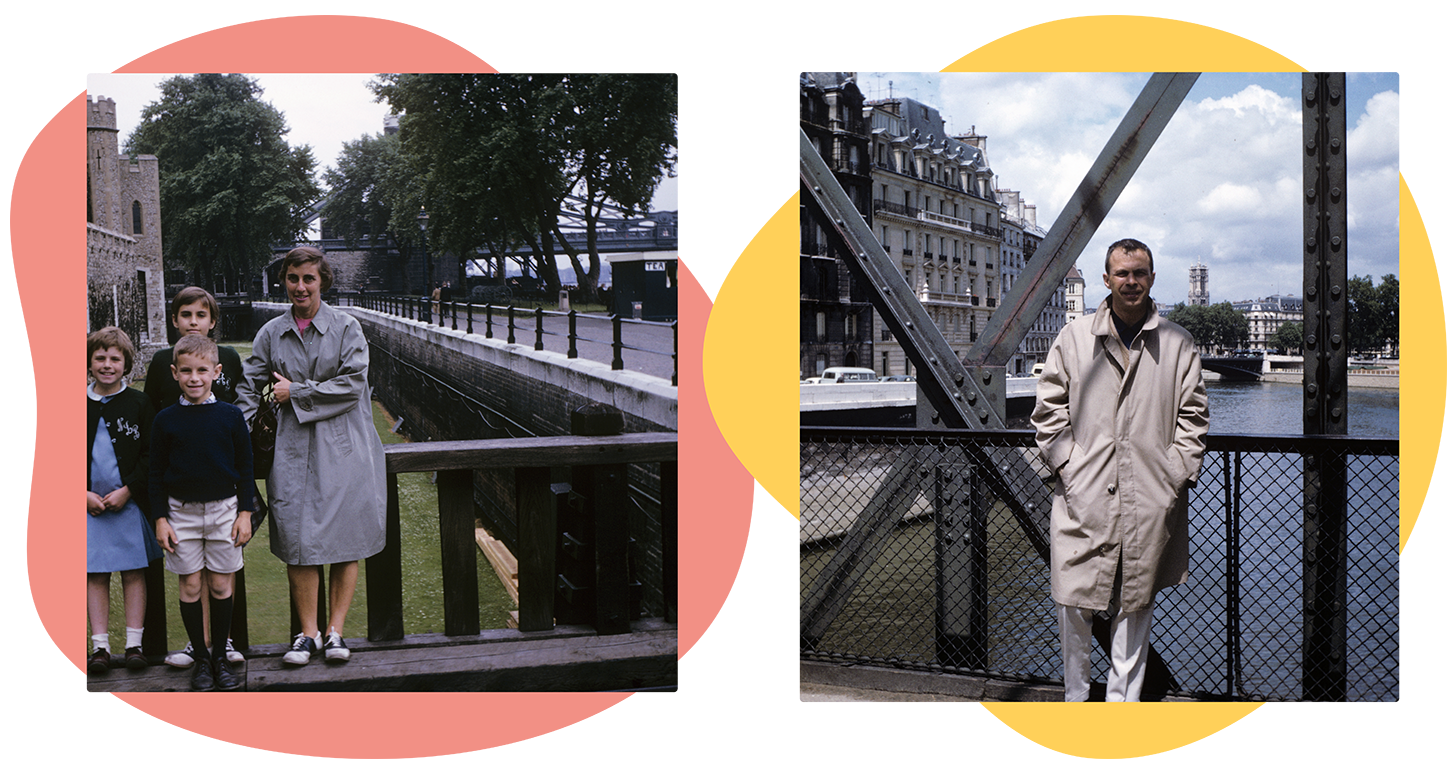



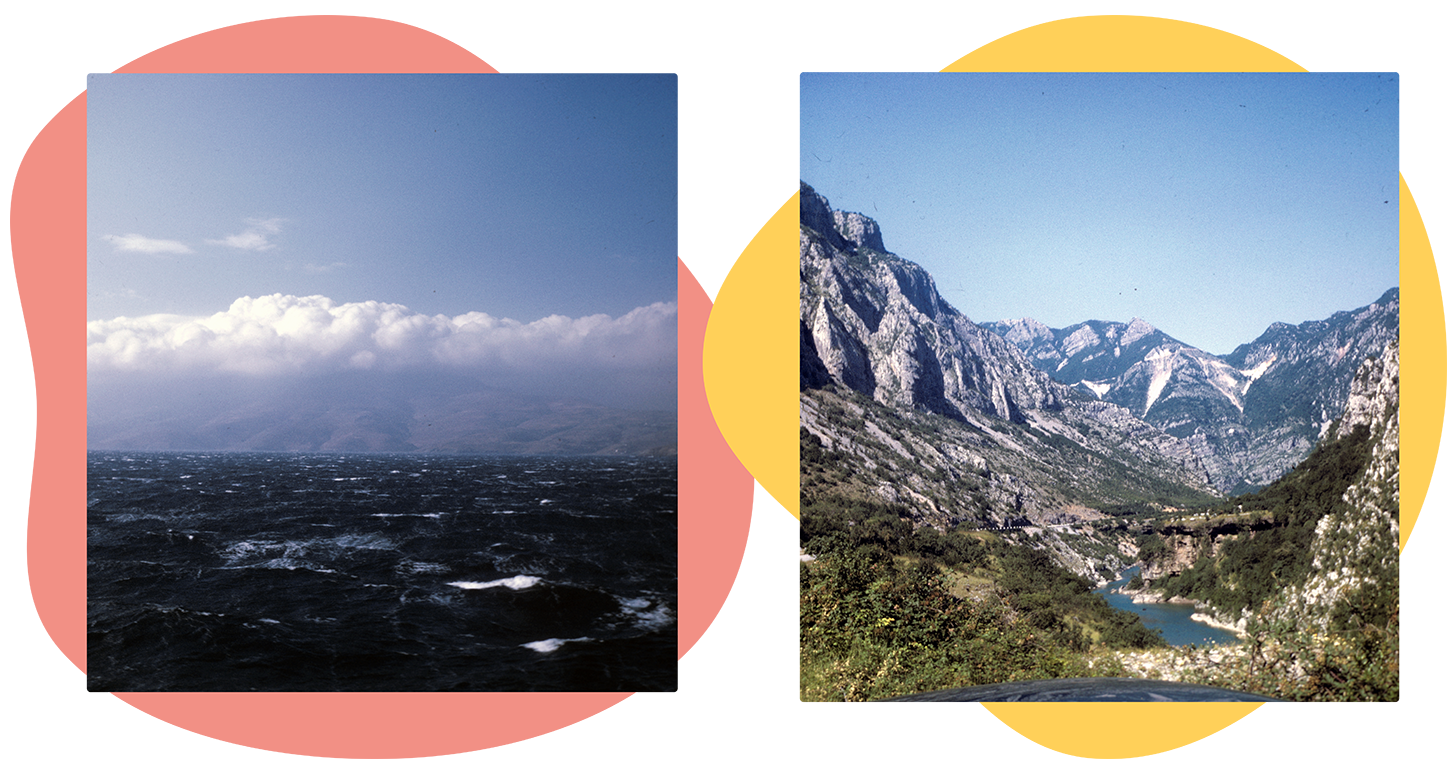




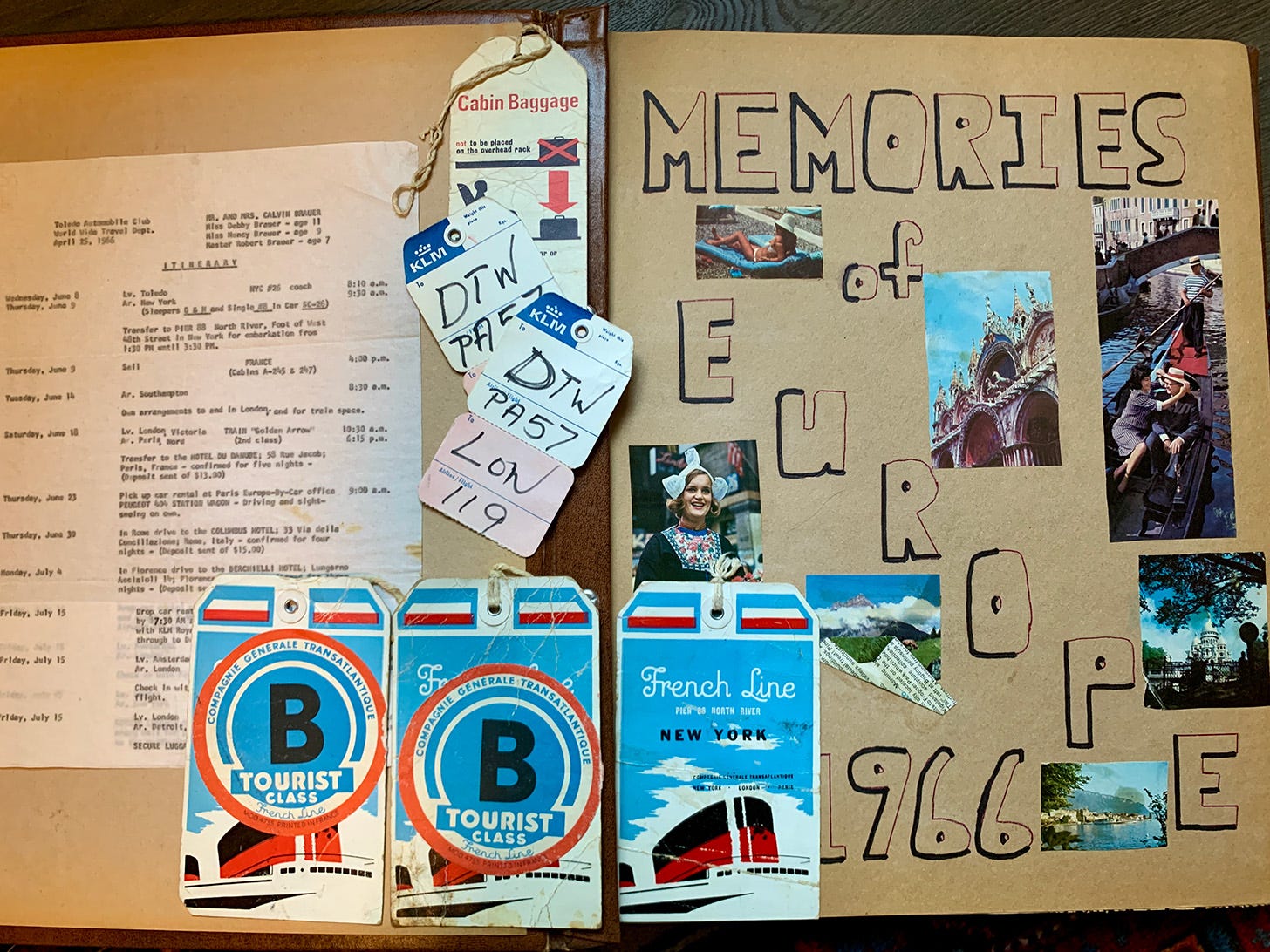

What great stories! 💚
Oh to go back in time!!! And they make picnics sound so charming. ❤️ (we all know the truth 😉)